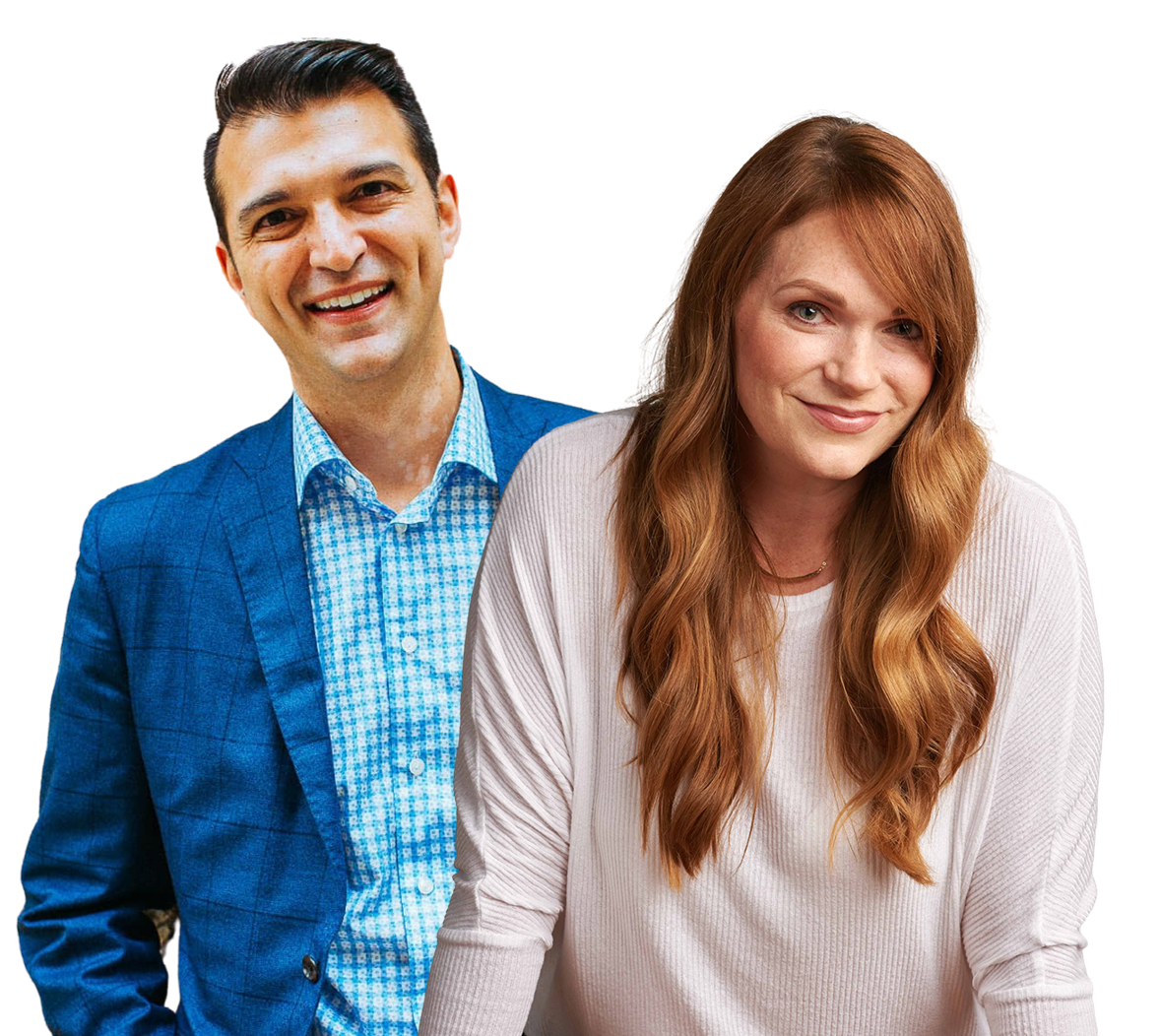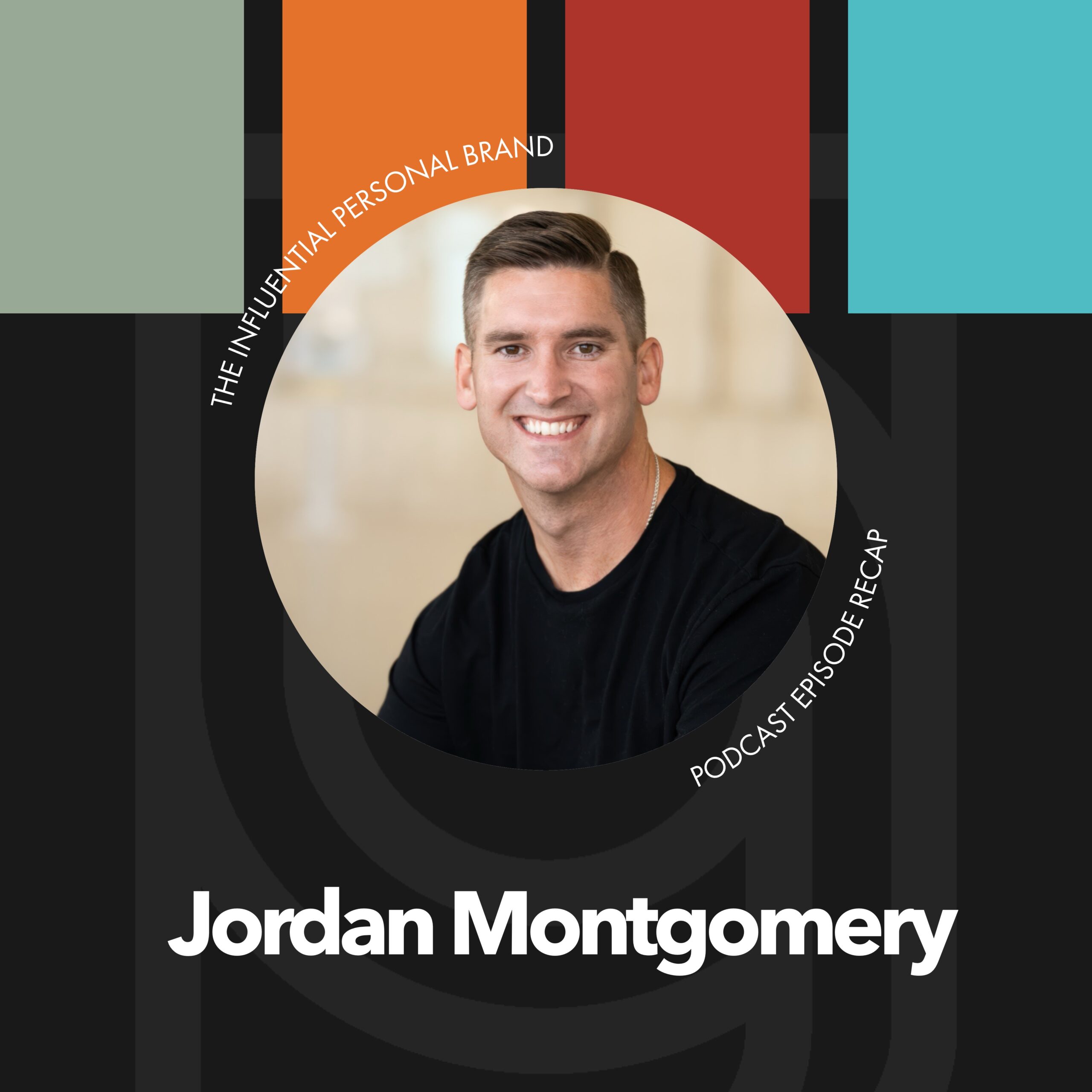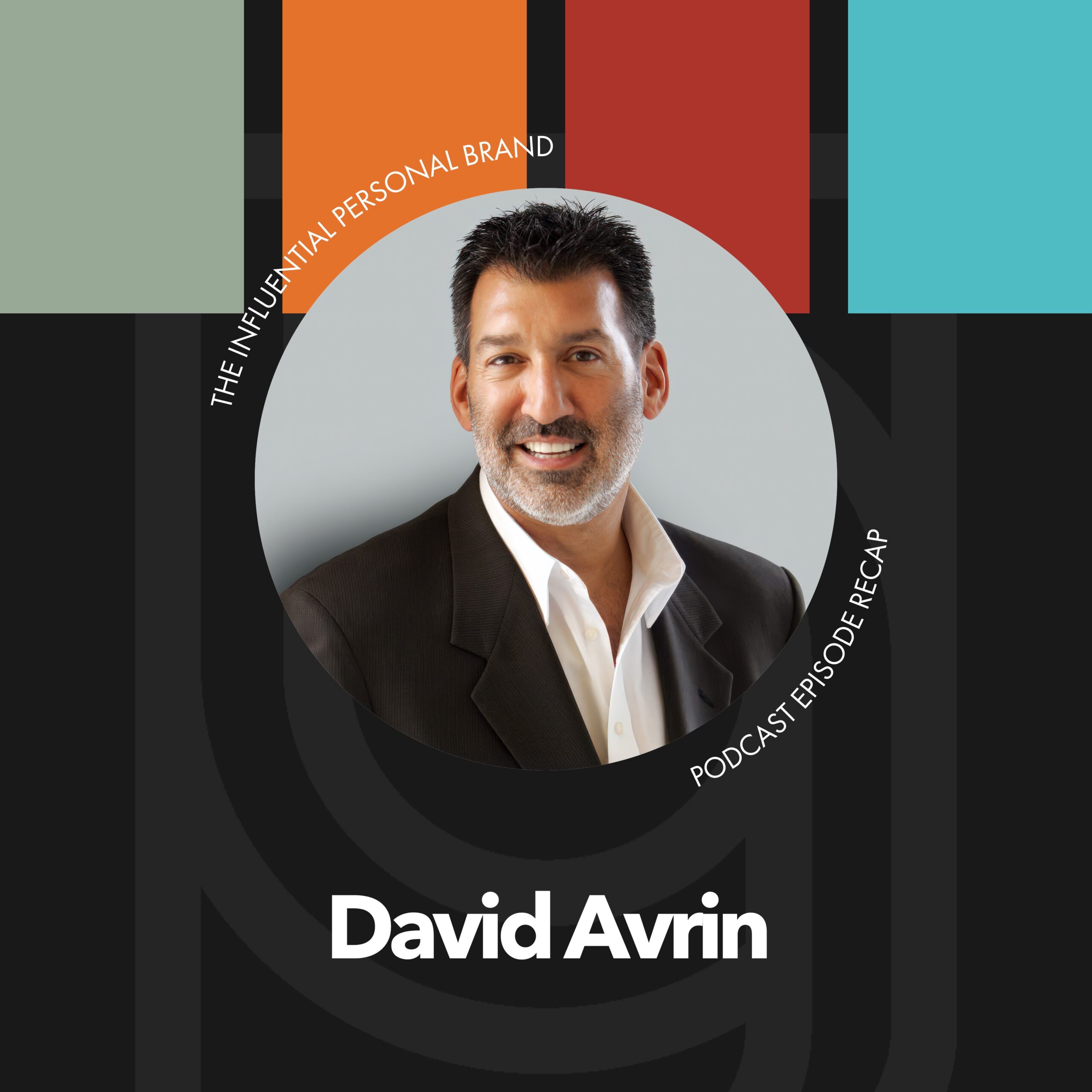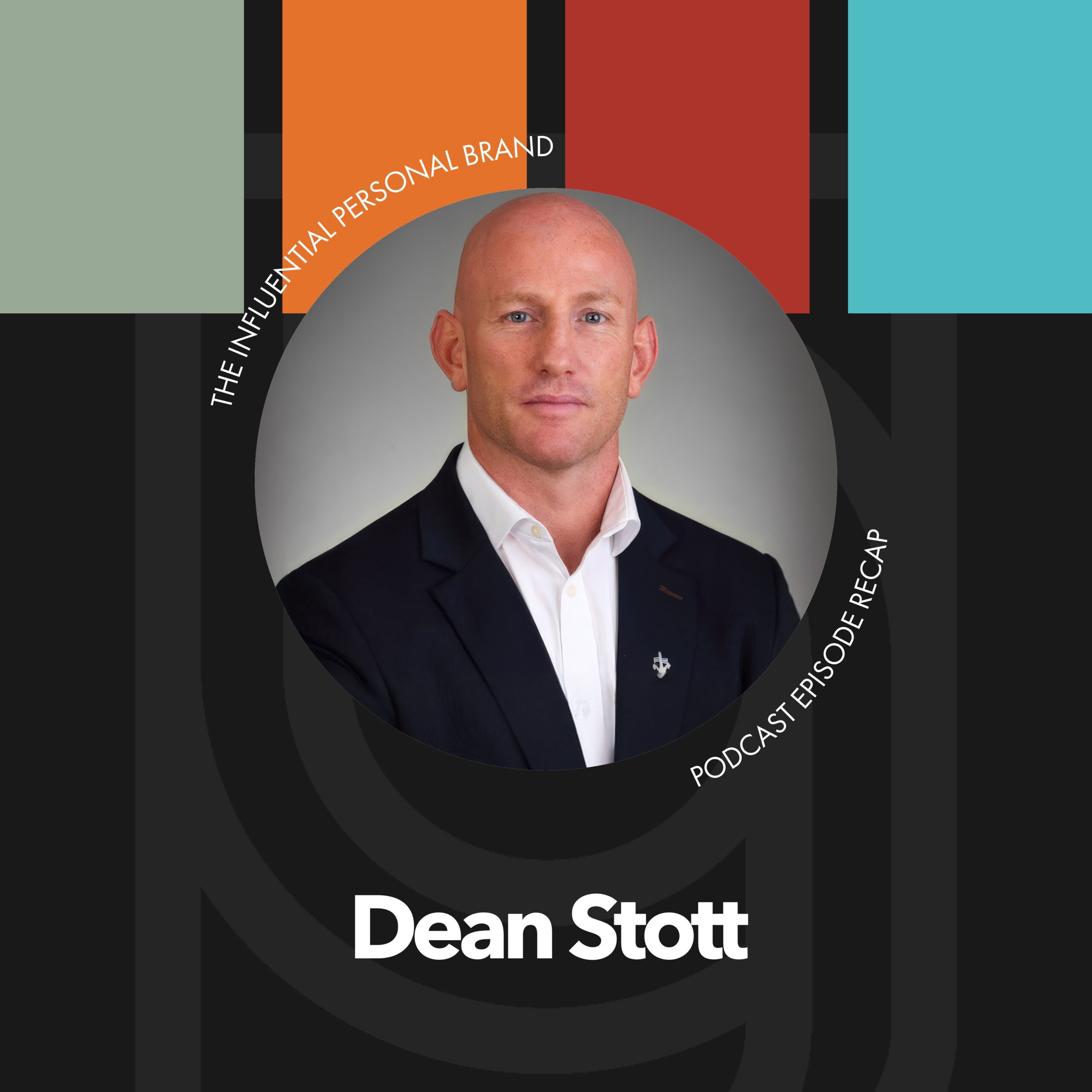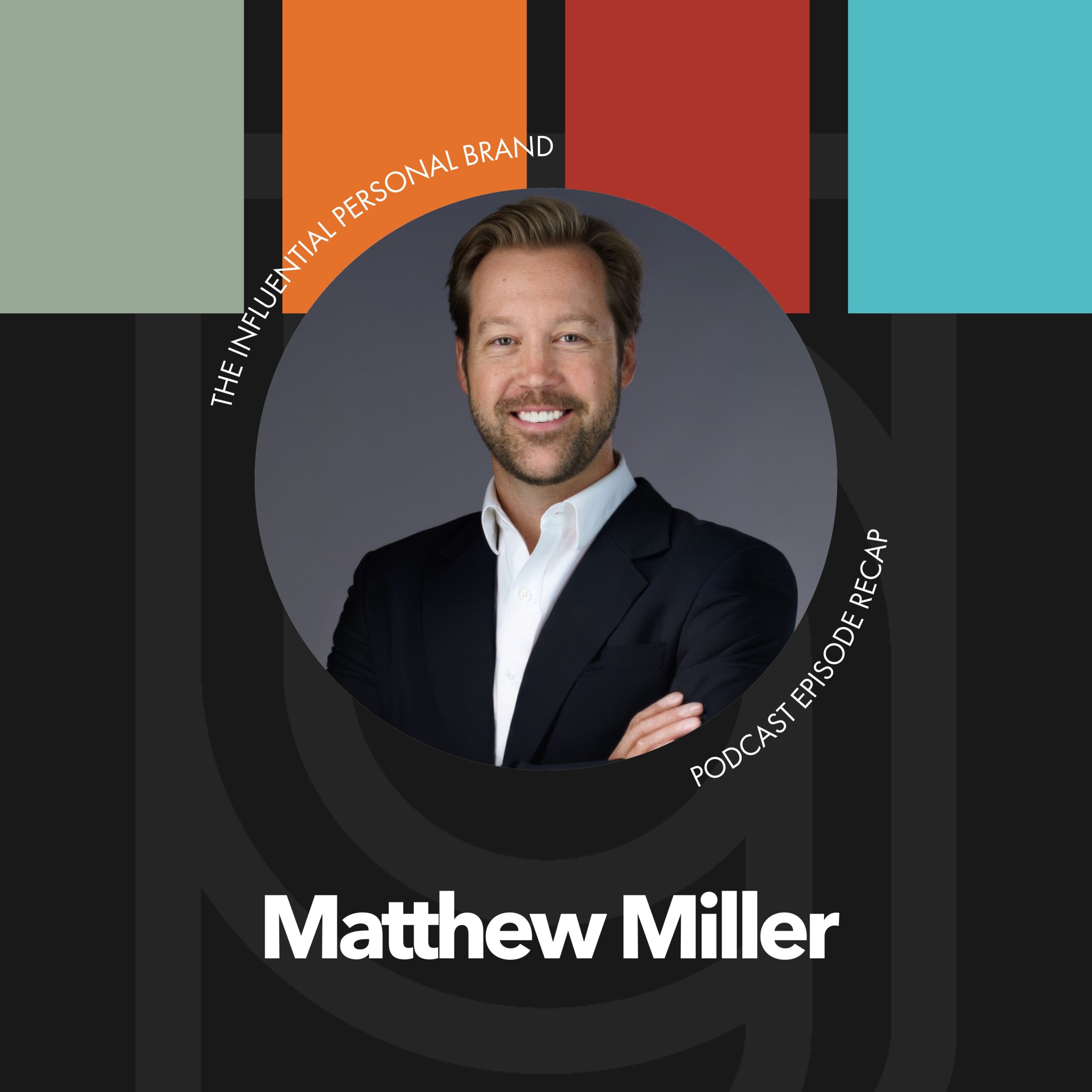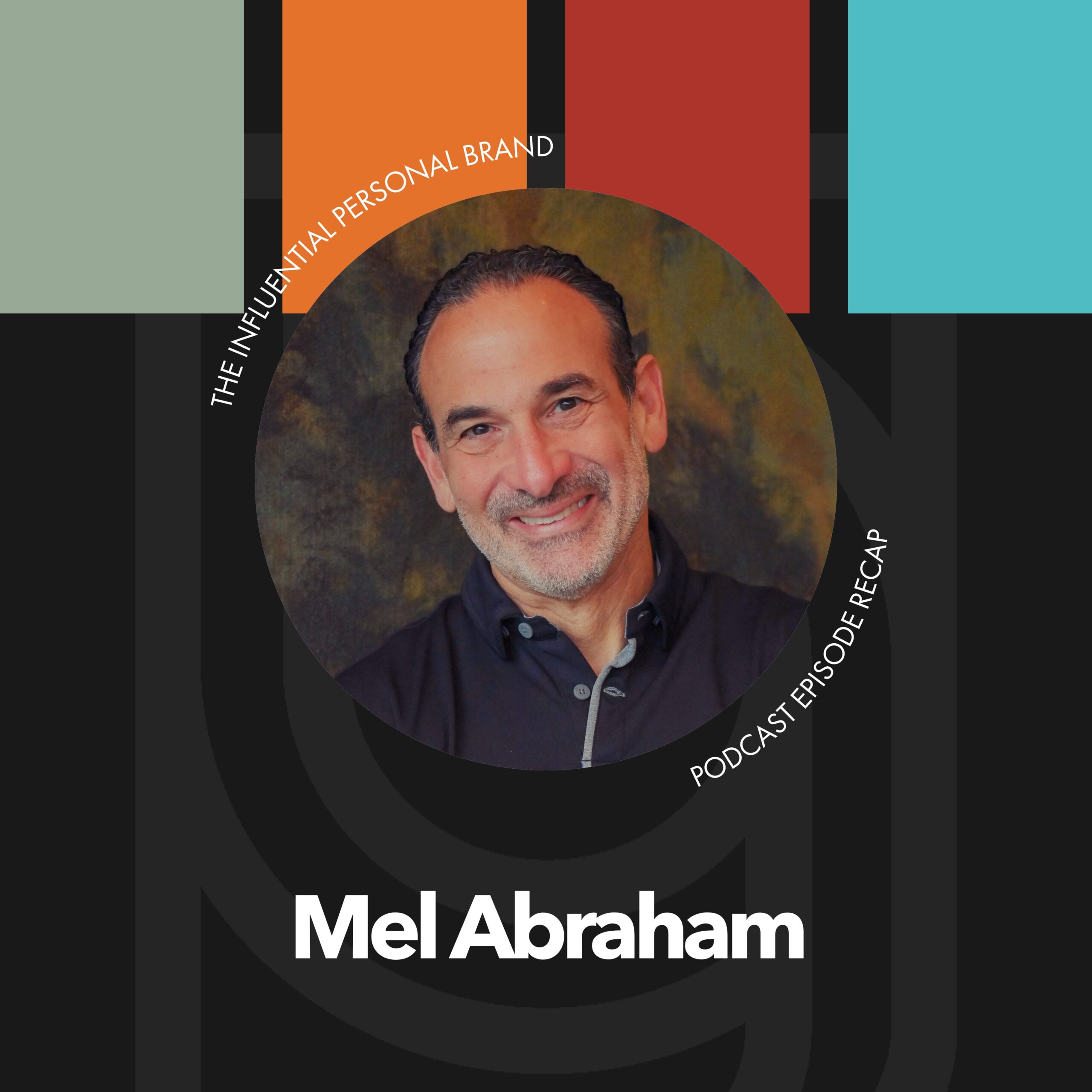RV (00:02):
Growing up with very little money. I’ve spent a decent part of my professional career studying money and learning about money. And one of the principles that I’ve heard consistently from different places about how do you make money and who makes a lot of money, is this principle. There’s, there’s a principle about making money that says money loves speed. Money loves speed, money follows speed. And, and I have really found that to be true, right? I mean, people are paying, they’re willing to pay for results faster. That’s what people are, are, are willing to pay for. And you know, this interview with Jay Baer blew my mind as it always does. And I, you know, Jay’s one of my best buddies and mentor and a friend, and like we’ve, we’ve helped him through the years. He’s helped us a ton. And every time this guy writes a book, it’s a paradigm shifting book.
RV (01:06):
It’s one of the things I love about Jay Baer books. And, and you know, he’s written on some different subjects over the years, but it’s like every time it’s like a new big idea every single time. And this I think is brilliant, right? His whole premise is speed as a competitive advantage. Speed as a competitive advantage going, I am not, what if you focus just on being faster? And I think that this is one of the most powerful questions that you can ask for, to make more money and to get more referrals and to break through Sheehan’s Wall and become more well known. It’s to say, how can I help my customers succeed faster? How can I help my customers succeed faster? That is like the whole mission of Brand Builders group that we’re on right now, right? Like when we first started the company, it was sort of like survival mode, getting it off the ground.
RV (02:06):
Then it was sort of like, you know, scaling up our, our operations and infrastructure. Then it was streamlining and, and really clarifying and, and distilling down what it is that we do. And, and you know, we had a one year that was basically like creating all the curriculum. And now we’re, we’re entering this era where all we’re doing everything that we’re focused on is how do we help our clients succeed faster? And I didn’t really think of that as a competitive advantage ’cause we don’t really compete with people. Like, we don’t make strategic decisions based on like, what other people in the market are doing, but just as an advantage, right? Or just, just, just as a, you know, as a, as a differentiator, right? Speed as a differentiator, or speed as a reason for people to choose you. And that the, the, the stat that blew my mind was when Jay said, two
RV (02:58):
Thirds of people say that speed is as important as price, right? So this is from Jay’s book, the Time to Win, which is obviously what we were talking about. Get it, it’s a great little book. I mean, it’s super quick read. And two thirds of people say that speed is as important as price. Like we live in this era. You know, this is where, what he said, where people interpret speed as caring and responsiveness as respect. That’s so good. And that that is so true. Like that aj you know, there’s the, there’s the five love languages, whatever it is, like gifts of the heart and acts of service and all that. AJ’s love language is responsiveness. , like, at least in the professional setting, that is her love language is responsiveness. She wants people to be communicative with her. Where are we at on the project?
RV (03:54):
What’s the delay? When’s it gonna be finished? What, you know, what’s the deadline? What do you need? Who’s the bottleneck? Da dah, dah, dah, dah. Like, what’s the, what’s the plan? And when she sends a message, it’s like she wants an answer immediately. And, you know, for, for A-C-E-O-I think she’s, she’s insanely responsive. Like most CEOs are not all that responsive. You know, they’re pulled in all these directions, but she just values it so much. And she interprets responsiveness as respect. If you’re, if you don’t respond to her quickly, it’s a sign of disrespect. And I, I’m, I’m starting to see this, right? This whole conversation with Jay opened up my eyes because I go, this is me. I care more about, as a consumer, I care more about speed than price. I go, yeah, I’m, I’m willing to pay more, to move faster.
RV (04:43):
And, and that’s part of what, you know, the era we’re in at Brand Builders Group is like, we’ve always, you know, we’ve been a, we are a strategy firm. Like at our core, we’re a strategy firm. We’re not an agency. But we, we are creating more tools and templates to help clients succeed faster and to always create better strategies, more customized strategies to help them access what they need so that they can get results faster and faster and faster to get things deployed. And here’s a, here’s another line that I love from Jay. When he said this, he said, it’s okay to be a little bit wrong if you’re a lot, a bit fast, it’s okay to be a little bit wrong if you’re a lot, a bit fast. And, and many times, you know, you think of like search engine optimization, like demand driven marketing.
RV (05:31):
When people are searching a term, it’s like they want something, they want it. Now, a huge part of whether or not you make that sale is like, who can get to that person first? Who can return their phone call first? And so I just, I thought this was really, really cool. One of the tactical things that I just wanted to come back and underscore and highlight to the, you know, for everybody is, is the idea of a fast pass, right? The idea of a fast pass is that people will pay to be able to skip the line to people will pay, people will pay, people will always pay to be able to go to the front of the queue, right? I mean, this is like the VIP line. This is any anything VIP or, or you know, Disney has the, the fast pass or all the amusement parks, right?
RV (06:20):
If, if you go to Universal Studios or whatever. And that’s one of the things that we have started offering, right? Is, is we have created opportunities for people to coach with me directly. And it’s, it’s a higher investment because I can help people get to results faster. Just ’cause I got the most experience doing this personally and the most experienced coaching other people to do it, right? So historically, I’ve, I’ve never been available like formally to do private coaching with our clients, right? I, I mean, I, and, and I coach everybody. I’m at, I’m at our events and I do two group coaching calls a month. So like, we have different tiers in our membership, right? And so there’s, depending on what tier you’re in you know, you get to come to our live events. Well, we do, I think we’re doing 32 live events next year.
RV (07:13):
And so four of ’em that are two days, I’m, I’m at and AJ’s at personally, those are, so in-person event not all of our events are in person. And then twice a month for all of our members, I lead group coaching where people can ask me questions and, you know, we do like rapid fire, but doing private one-on-one coaching is, is not something that historically that we have offered until recently. We, we have created something called Brand mastery, which is when people can work with me directly in a, in a very small group, right? It’s still a small, a small group, but they can work with me directly as their strategist. And there’s a higher level of investment. And that’s ’cause we go really fast, right? And we have an, we have an annual pass of that where people are able to spend up to 10 days with me a year and we can crank.
RV (08:01):
I mean, if I get 10 days in a room with someone, I can, we typically, like we can transform their personal brand quickly. So that’s an example of a fast pass. We’re also working on a for years we’ve been developing something that we’re just, just now rolling out called Instant Automation Toolkit. Instant Automation Toolkit is something that’s only available for brand builders members, right? So you have to be one of our strategy clients. ’cause You have to have the education, you have to understand how it all works together. You have to know what a brand positioning statement and, and the 15 Ps and the content diamond and webinar funnels. And like you, you know how all of these, the, the, the modular content method, like how it all fits together. But then we, we took all of our six core campaigns for our, our web, our, our high converting webinar funnels, selling high dollar offers, booking keynotes, doing book launches, building websites, the six most important core campaigns.
RV (08:57):
And we templatized all of them. And now we make it available to members. They can either buy ’em and own ’em out outright, or they can just rent them for like a much lower fee so that we can get them live quickly. That’s why instant automation toolkit is everything about going, okay, now you’ve learned the strategy. The next era of Brand Builders group is going, how can we help you execute faster and, and cheaper? Because if you have to go source and hire all these people, whether they’re employees or vendors, it’s slow, it’s painstaking, it’s expensive, and you’re likely to make mistakes that cost you money because you don’t really know how to coach them. Well, instant automation toolkit is going, what if we just give you ours? And so we’ve been developing this for years and it’s, it’s amazing. We’re, we’re just about to roll it out.
RV (09:43):
We just, we’ve already rolled out our copywriting templates. So half of it is copywriting templates. The other half is the actual technology where we build the, we build the funnels and build the websites for you using our, using our actual one. So we take our exact funnels and then we swap out our stuff, put your stuff in there. So the copywriting templates have been available and it’s like we’ve got people cranking out entire pipelines in a few hours or a few days. Like it’s, it’s amazing. And going, yeah, people will pay for that because there’s, there’s value to that. ’cause, ’cause Money loves speed. You know, the other thing is, is when you think about money in relation to time, time multiplies money, right? Compounding interest. If I, if I take money and I invest it today, you know, it, it money invested over time is it grows and grows and grows.
RV (10:34):
So the earlier I can, the earlier I can have access to money, the earlier I have access to cashflow, the longer amount of time I get to benefit from interest, right? From compounding interest. So it, there’s value to having money today versus having money in the future. This is another thing that we do. We, we started in Brand Builders group about a year and a half ago we rolled out a pay in full feature. And so what happens is, you know, we have our, our programs are annual memberships, and we’ve got, you know, now, now counting brand mastery, we’ve got three different levels of, of membership. Well, there’s a, there’s a discount for paying in full where we give, we give people two months free if they pay in full today, because even though it costs us money, right? We lose money on that.
RV (11:26):
And we still have all the costs of delivering those last two months of service. But there’s value to having all the cash in hand now because we can deploy, we can reinvest that cash into growing the business versus having to wait for it and not seeing it for 10 months. There’s also value in the certainty of collecting it, right? And so we, we share in that with our customers to go, Hey, if you’re willing to, if you’re willing to commit for 12 months and pay us now and go, we’re in this together, we’ll give you a discount. And so that’s the first time we’ve, we, we don’t, other than that we don’t discount, we never discount, we don’t change our prices. You know, people can buy a lower thing and get a lesser price, but we don’t sell the same thing to two people for lesser prices.
RV (12:07):
We, we just, we don’t discount. So, but, but we have offered this fast pass and it’s been massive. C clients love it. They also get to accelerate the deduction on their taxes, right? So like right now, as an example or, or when you get to the end of the year or the end of a fiscal year, you know, they, they can pay us for a year in full and they can accelerate that deduction on like this year’s taxes. So we see a lot of that happen at the, at the end of the people’s calendar year, the end of their fiscal year. So think about how can you incorporate a fast pass concept into your business model? Because this really, I think this really, really is true. My third big idea or takeaway from Jay in this interview was when he said, give your customers a clue of what to expect as it relates to time, absence of any guidance.
RV (13:01):
They’ll expect it instantly. And I thought, wow, that, that, that really is powerful. And so make a time promise the way he said it was, make a time, pro promise, but make one that you can overdeliver on. And I think that’s really key, right? It’s, it’s, it’s not, you know, if you don’t tell me when I’m gonna get it, my brain defaults to, oh, I want it tomorrow, right? Even if it’s like building a website, right? You go, okay, well I’m hiring you to build me a website. Like why can’t I have it tomorrow? Like, why can’t I have it next week? Like, what’s the big deal? Right? Part of the reason, and and I think that’s a natural default that people have because part of the reason why they’re hiring someone else is they don’t have the wherewithal to do it themselves. So they often aren’t knowledgeable about all of the details and the steps and the processes and the things that go into doing something, and that’s why they’re hiring someone in the first place.
RV (13:51):
So we tend to, we tend to underestimate how long it takes other people to do things. We tend to underestimate how long it takes other people to do things. And that’s because we don’t know how to do them. And so we’re not aware of all of the steps, and absent that, absent that awareness, we don’t have the ability to calculate the time or really appreciate even sometimes everything that they’re doing. So what happens is, if someone communicates though and they say, oh, no problem, we’ll have your, we’ll have your website done in two months. Well, I don’t love that, but it’s better than them not saying anything. And like, after the end of month one, I’m going, well, I was thinking this would take a week. Like, why is it taking four weeks? Like, what, what’s the deal here? And now I’m annoyed. Versus if you say, oh, it’s gonna take three months and you actually deliver it in eight to 10 weeks.
RV (14:44):
Now I’m ecstatic. ’cause I go, oh, you know, while I would love for it to be done tomorrow, you set the expectation for me that it wasn’t gonna be done for three months. And then you, and then you over-delivered and you beat that. So now I’m ecstatic. So this is a really important conceptual point to understand that it’s not really how long something takes that annoys people or makes them happy, it’s how long it takes in proportion to their expectation of how long they thought it would take, right? So if it takes six months, that’s neither long or short. It’s only relative. So this is very similar to how we teach we teach our members when they’re selling high dollar offers, there’s no such thing, there’s no such thing as expensive or inexpensive. There’s only such a thing as relative, right? So if somebody’s gonna pay me a hundred thousand dollars to spend two days with me, you go, well, that feels expensive.
RV (15:44):
And it’s not nothing. But I go, well, yeah, but if I can help someone land a half a million dollar book advance, if I can help someone become a New York Times bestseller, if I can help them get speaking engagements where they’re gonna, they’re gonna do, you know, half a million to a million dollars a year in speaking fees for the rest of their career. If I can help them save a hundred thousand dollars on their taxes every year for the rest of their life, if I can teach them, you know, how to build a sales team that will grow millions of dollars. Like, it’s, it’s not, it’s not much relative to that. So, so it’s always relative, right? Well, this is the same thing. Time is never really long or short. It’s always relative. And, and in this case, it’s the, for your customers, it’s relative to their expectation of how long it was gonna take, right?
RV (16:27):
So give them a time promise and, and make it one that you can overdeliver on. Because if you tell me it’s gonna take four months and it takes six months, now I’m upset. But if you tell me it’s gonna take eight months or 10 months or a year, and you’re done in six months, man, now, now I’m ecstatic. It still took six months, it took the same amount of time, right? Like, it, it, it takes whatever time it takes to do something. So of course, hopefully you can operate more efficiently. But, but I think what you wanna do is you wanna, what people don’t allow for the, and part of the reason why we underestimate how long everything takes is because what people never allow for, they never account for is they never account for unplanned expenses of time or money. They ne they never account for emergencies.
RV (17:15):
They never account for extraordinary items, unforeseen thing, unforeseen delays. I, I remember early in my career as an entrepreneur, I had a, a financial mentor, you know, and I, and and I, we were looking at financial statements and I was saying, well, gosh, you know, I feel like we’re being punished because there’s this one unusual item that, you know, we didn’t have in the budget. And I go, well, how is that our fault? Like, none of us saw it coming. It’s not like it was poor management of the company. And and his response to me was, he says, well, you have to create a budget that always has margin in it for things like that. Because while it’s unexpected, you can always expect the unexpected. You can always plan for the unplanned. You can always assume that something is gonna happen that you weren’t assuming was gonna happen.
RV (18:06):
And that is a radical mind shift as it relates to your personal finances, right? And not spending every dollar you have, but saving to go, I can’t spend every dollar because what happens when my, I get a flat tire or when the, you know, the water heater breaks or, or, you know, I have to take a sudden flight somewhere that I wasn’t planning on. You know, like you have to be able to, to do that. You wanna, you wanna have margin, margin, you wanna have margin in your planning margin, in your budgeting, budgeting of money and budgeting of time. And so understanding all of this and, and realizing that time is, I mean, in this case, according to Jay’s research, right, this is empirically validated. Now, two thirds of people say that speed is as important as price. And I’m in that two thirds, right?
RV (18:54):
I go, man, if one person you know is gonna charge me 10% more, but they can get it to me, you know, 30% faster, I’m in every time, every time. So minding people’s time, treating it as sacred you know, making a time promise overdelivering on it, giving them an opportunity for a fast pass to pay extra to, to, to move things faster. And, and just realizing that, that people interpret this is right from Jay speed as caring and responsiveness, as respect. That is from a man, Jay Bearer, his new book the Time to Win. Go by the book, y’all. It’s not even a full-size book. It’s a little tiny book. Like you could, you can read it in an hour. And it is life changing, paradigm altering, you know this idea of using speed as a competitive advantage. So thanks for tuning in.
RV (19:53):
Hopefully listening to this podcast is helping you accelerate on your journey. And I hope we get a chance to move you at some point from being you know, a, a free consumer of our content to working with us and watching how we can accelerate your dream, coming true faster and faster, faster, to help you drive more leads to your business, launch a new revenue stream, you know, write books, be a speaker, grow your audience, grow your impact. Whatever your dream is for building your personal brand, hopefully we get a chance to partner with you to make that dream come true faster. That’s a big part of our wish. Until next time, we will you know, we’ll, we’ll, we’ll sign off for now. Have a great one. We’ll catch you here. Next episode, influential Personal Brand podcast. Share this with someone who needs it. See you then.



